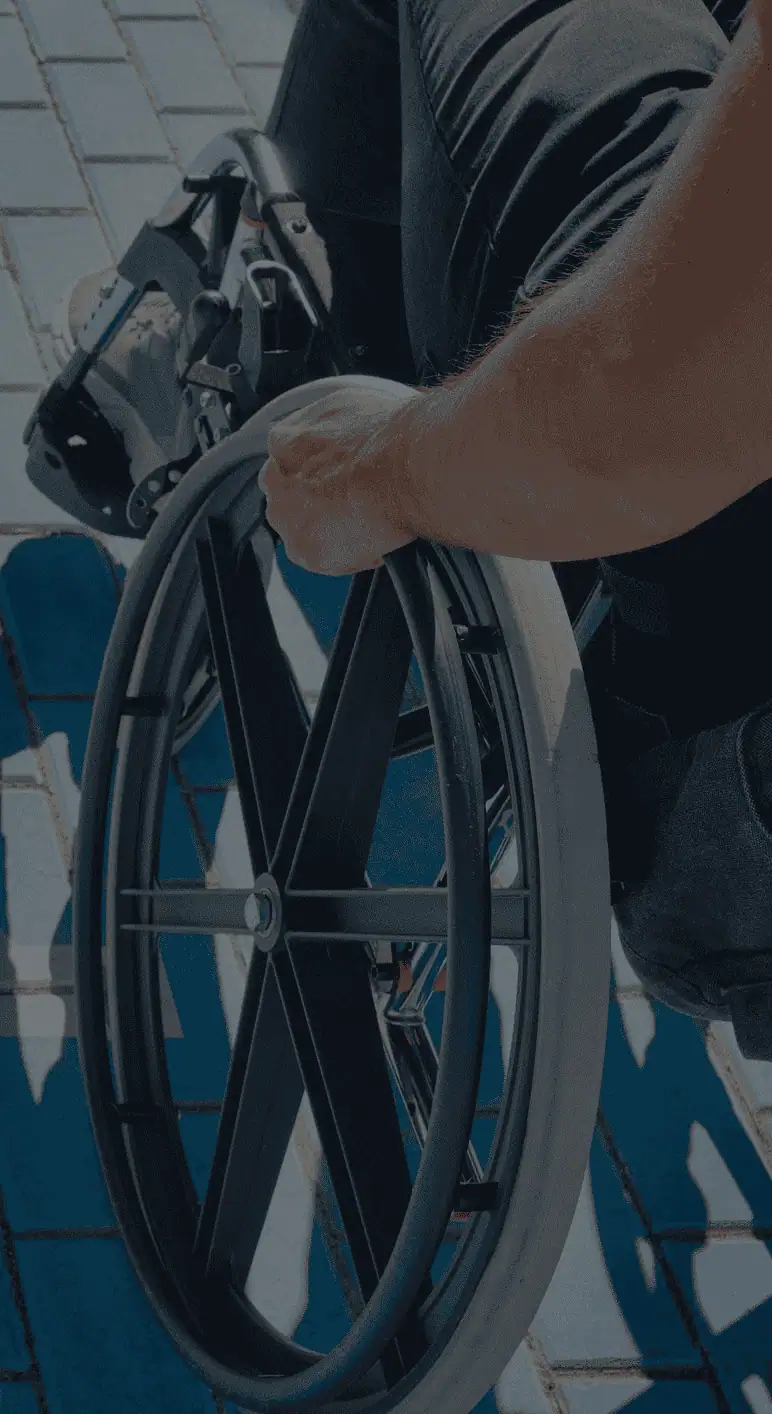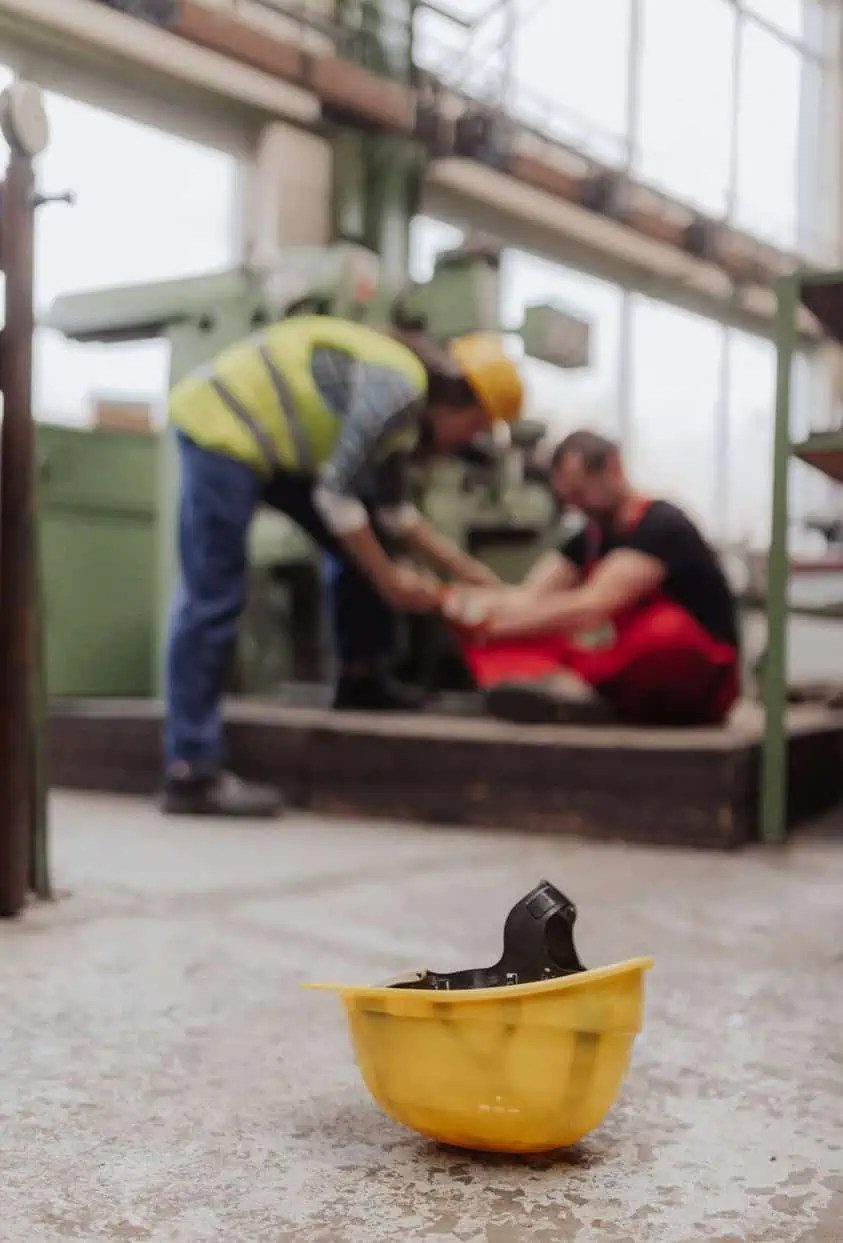
Before completing a Functional Capacity Evaluation (FCE), you should know that this assessment can measure an individual‘s physical abilities and limitations. Before undergoing this evaluation, it’s essential to understand what to expect and how to prepare.
This guide will provide essential information to help you navigate the FCE process. You can turn to a Las Vegas workers’ compensation lawyer if you have additional questions about your FCE and the process of getting the funds you need after an accident at work.
Information About FCE Tests
You should know what an FCE is before completing the assessment. A Functional Capacity Evaluation is a critical part of the workers’ compensation claims process. The test is taken by the injured employee in a workers’ compensation case.
The physician seeing the patient typically orders this evaluation. Physicians can use it to determine a person’s ability to return to work after an injury or illness, or to assess their eligibility for benefits.
An insurance adjuster, lawyer, or employer could also order an FCE.

What To Know Before Completing Your FCE Test
Whether you are taking the FCE to obtain disability benefits or looking to return to your duties, you must prepare for the exam. You’ll want to answer every question asked of you and provide the most accurate information possible.
Here are some ways you can prepare for your FCE test.
Review Your Job Description
Reviewing your job description will help you understand the physical demands of your job and how they relate to the FCE. It can help you know what to expect the FCE physician to ask of you during the exam.
If you don’t have a copy of your job description, you should contact your employer’s human resources (HR) department or your supervisor. Your workers’ compensation attorney can help you obtain your job description and understand how your injuries prevent you from completing specific tasks.
Learn What Information the Employer’s Insurance Company Provided
The insurance company representing your employer will have a claims adjuster write a letter to the FCE physician. This letter may describe your injuries or details of the treatments you have received or are currently receiving.
Before going through the exam, you must know exactly what this letter contains. Ask to review the letter and address any discrepancies during your exam. Request a hard copy of the letter and send a copy to your workers’ comp case manager.
Review Your Medical Records
The doctor administering your FCE test will be familiar with your medical records related to your claim. Your records may include information about any previous injuries you sustained in the same area.
Be prepared to answer questions about any other injuries you’ve experienced. Always be honest, and never try to hide or downplay them. Highlight any differences between your previous injuries and your current condition.
Find Out What Questions You Can Expect from the Examiner
Your employer’s insurance company will have requested specific information. You must learn the questions they’d like answered so you can go to the test prepared. This information will be in the letter you requested from the insurance company. Be fully prepared to answer each question.
Make a List of Current Symptoms
During your FCE exam, you must be clear about your current pain levels and symptoms. It may help to make a list of the main areas affected by your injury, additional symptoms, and any limitations you’re experiencing.
These limitations could include the inability to do simple daily tasks like grooming, walking, or preparing meals. If you’re experiencing referred pain or pain in other areas due to your injury, you must also mention that. Add it to your list even if it seems like a minor symptom.
Review the Accident to Ensure Your Account Is Consistent with Records
You’ll have to recount specific details about your injury and the accident itself. It’s essential to be clear that the accident was related to your job. The doctor may be looking for discrepancies or inconsistencies in your story to include in the report. Be sure all your answers are consistent and concise.
Avoid overelaborating or speaking for extended periods, as these actions can impact the outcome of your claim.
Other Tips for Preparing for the FCE Exam
There are some general steps you can take to ensure you are ready for your FCE exam, including:
- Get a good night‘s sleep: Being well-rested will help you perform at your best.
- Eat a light meal: Avoid heavy meals that could make you feel sluggish.
- Wear comfortable clothing: Choose loose-fitting clothes that allow for easy movement.
These actions will help you feel more comfortable during the exam, allowing you to focus on what is required.
Consult with Your Workers’ Compensation Attorney
Before you go to your FCE exam, you should have a meeting with your lawyer. They can review your file with you and help you prepare for common questions asked at the evaluation.
Workers’ compensation lawyers have in-depth knowledge about what happens when medical experts conduct FCE examinations. They can guide you through the process before it even happens and explain what you need to know before completing your FCE request.
Who Needs a Functional Capacity Evaluation?
Anyone who has filed a workers‘ compensation claim can be subject to an FCE test. A physician usually orders the test, but your insurance company, lawyer, or employer can also request it.
It’s used as a baseline to gauge the worker’s ability to meet the job’s demands. You can choose to refuse an FCE exam, but there are consequences. Refusing to take a functional capacity evaluation will be noted by your case manager, and the test administrator will record the exact words you used when refusing.
If you have a high possibility of re-injury, your healthcare provider may recommend an FCE before you return to your job duties.
Free Consultation We’ll help you win the benefits you need to get your life back.
Why Do You Need to Do an FCE Test?
If you have been injured on the job and must undergo physical therapy or require the services of an occupational therapist to heal, you may need to complete an FCE test. An FCE test evaluates your physical abilities to see if there might be any limitations to your being able to perform the job you had before your injury.
From the test results, your physician or the healthcare professional evaluating you can determine whether you can end physical therapy completely and go back to work. They will submit an FCE report to the party that requested the test and your case manager.
Depending on how you do on your FCE test, you might have permanent restrictions on work performance or be deemed unable to return to your previous position.
When Does an FCE Test Happen?
Medical professionals typically complete an FCE test at the end of the physical therapy or occupational therapy process. However, you could also complete it any time doctors release you from medical care.
An injured worker could also take an FCE test if they have not completed physical therapy. You can learn more about when to expect FCE testing and what to know before you complete your FCE request from an attorney.
What Happens During an FCE Test?
An FCE test happens at a medical facility, such as a physical therapy center, and the certified healthcare provider who received the referral will carry out the test.
Healthcare providers can include physical therapists, physicians, or athletic trainers. The test typically lasts between two and three hours.
Always wear comfortable clothing that allows for unrestricted movement. You’ll also need your medications and mobility devices, such as a brace.
When you arrive, the clinician will know your job, required duties, and injury diagnosis. They will also know about any physical therapy you received. During the test, the physician will test several elements of your physical strength necessary to perform your job, including the following:
Functional Testing
You will undergo physical tests that involve pulling, pushing, lifting, and carrying materials for your FCE. A medical professional may administer these tests to determine your physical limits.
Dexterity Testing
The healthcare professional will test your physical capacity for actions such as squatting, walking, kneeling, reaching, standing, balancing, crawling, bending, and sitting.
Work Simulations
You may have to perform tasks that mimic your job duties, such as typing, filing, or operating machinery.
Psychological Evaluation
Doctors may perform an evaluation that includes assessments of your pain tolerance, motivation, and overall effort.
Injury Testing
The doctor will measure your muscle strength and range of motion in the affected areas, comparing them to your previous physical condition as reported in your medical records.
The results of the FCE go into creating a detailed report that outlines your physical capabilities and any limitations. This report can help guide decisions about your return-to-work plan, including any necessary accommodations or restrictions.
Your case manager will add all information to your workers’ comp case file. Added information includes anything you say during the appointment and any observations made by the testing physician.
What to Do During Your FCE Exam
On the day of your exam, you must conduct yourself appropriately. Don’t be nervous, and consider the tone of your voice when speaking to the doctor. Please plan to arrive at least 10 minutes before your scheduled appointment time. You could miss the appointment and delay your overall claim if you’re late. It will also reflect poorly on you.
Now that you’ve reviewed what to know before completing your FCE request, here’s what you can do to ensure the appointment goes smoothly.
Act As Though the Doctor Is Watching at All Times
Always act as though your doctor is observing you. Your doctor is evaluating you to ensure your workers’ compensation claims are accurate, so you should always honestly display your symptoms.
If you claim that you cannot walk without limping but take painkillers that allow you to walk briskly into the doctor’s office, your claim might be in trouble.
Be Honest During the FCE Examination
Part of the results of your FCE test has to do with whether the examiner believes you were making a genuine effort during your test. They look for specific signs that you are exaggerating your pain levels or not telling the truth about how your injuries are affecting your life.
Avoid Taking Pain Medication Before the FCE Exam
Pain medication helps you function even when you’re dealing with debilitating injuries. However, even over-the-counter pain medication, like acetaminophen and ibuprofen, could minimize the effects of your injury, causing the examiner to think you feel better than you actually do.
Wear Loose, Comfortable Clothing
The examination requires that you perform physical tasks for at least a couple of hours, so make sure you wear clothes that won’t prevent you from moving freely.
If you follow these tips during your appointment, the clinicians can accurately assess your physical activity. This increases your chances of securing Social Security Disability (SSD/SSDI) or a favorable workers’ compensation claim.
You can learn more about these tests and what to know before completing your FCE request from an attorney. A lawyer can also explain what not to do at your FCE test.
What Happens After an FCE Test?
Once the test is over, the examination team will compile your results and send them to your doctor. They can then approve the results and the recommendations for work restrictions.
Be sure to review these restrictions thoroughly to understand exactly what is expected of you when you return to work. If there’s anything you’re unsure about, don’t be afraid to ask your doctor.
What Happens if You Can’t Finish an FCE Test?
If you feel fatigued or cannot complete the required test, simply communicate that to the clinicians at any time. The testing physician will note this in the final FCE report, as well as any observations of pain, discomfort, or struggle during the test.
What if You Fail Your FCE Test?
You might think you’ve “failed” your FCE test if the examiner determines that you cannot perform tasks essential to the work you did before your injury. The examination report might have such stringent restrictions that you won’t be able to go back to work at all and will have to file for total disability.
But your case isn’t over even if you’ve received results like this. You still have the option to appeal the examination results. Appealing the results may mean that you must retake the examination or consult a workers’ compensation attorney for assistance.
How to Fight FCE Test Results
If you’re unhappy with the results of your FCE test, you have options. The work comp lawyers at Shook & Stone will work with you to ensure you completely understand the options available after receiving your FCE results.
Each situation is unique, and our team can help workers’ compensation claimants challenge a failed FCE test, fight for ongoing wage loss benefits, and find an employment situation that works best for your post-injury lifestyle.
FCE Assessments and Workers’ Comp Claims
Individuals injured on the job often have to submit to FCE assessments. Workplace injuries are common, and anyone can find themselves dealing with a workers’ compensation claim at some point in their life.
If you were among this number and got hurt in the workplace, you have the right to compensation. You can file a claim to receive wage loss benefits and medical care cost benefits.
A workers’ comp lawyer can give you the information you need to understand these assessments fully and to help with building your claim and bringing you the funds you need to recover after a workplace accident. Your attorney can also explain what you should know before completing your FCE request.
What Compensation Can You Get from Workers’ Comp?
The workers’ comp system in Nevada can provide you with several types of benefits after an on-the-job accident. After your workers’ comp claim is accepted, you may qualify for:
Funds to Cover Medical Expenses
Filing a workers’ comp claim can help you get the money you need to cover all the healthcare expenses associated with your workplace accident. The workers’ comp system can cover everything from your initial treatment to your final physical therapy appointment.
It’s crucial that you attend all scheduled medical appointments and follow a doctor’s treatment plan to receive workers’ comp benefits.
Lost Wages
Filing a workers’ comp claim can allow you to secure partial coverage for your lost wages if you need to take time away from work. Generally, the workers’ comp system will cover around 66% of your average pay while you’re off work and recovering.
Mileage Reimbursement
The workers’ comp system may also pay you for the costs of traveling to your medical appointments after an on-the-job accident.
Vocational Rehabilitation
Finally, workers’ comp may offer you vocational rehabilitation services if you cannot go back to your former job after a workplace accident. The program could help with retraining and job placement in some cases.
FCE Test Frequently Asked Questions
You can get answers to all your questions about FCE assessments from a professional legal team. An attorney will help with questions like:
How much does a functional capacity evaluation cost?
An FCE test can cost between $500 and $ 2,000, depending on the test type and the testing institution.
Who pays for the FCE test?
Typically, the party that requests the FCE pays for it. The party that has to pay could be the employer, the insurance company, or the government (for an SSD/SSDI claim). If your attorney requests an FCE, they may cover the cost.
What are the different types of functional capacity evaluation?
While there are many different FCE tests, the two primary ones are the mental functional capacity evaluation and the physical functional capacity evaluation. You may have one or both, depending on your claim.
How long does a functional capacity test last?
A functional capacity test can last between 2 and 6 hours. The doctor may break it up over two consecutive days.
Shook & Stone Is Here for You After an FCE Test
A lawyer can explain what you need to know before completing your FCE request. By being well-prepared, honest, and communicative, you can maximize your performance and advocate for your best interests.
If you’re facing an FCE test and need legal guidance to protect your rights, don’t hesitate to contact Shook & Stone Injury Lawyers. Our seasoned team has more than 150 years of combined experience. We can guide you through the complicated process and fight for the benefits you deserve.
Contact the Las Vegas personal injury lawyers at Shook & Stone for legal advice to better understand the results of your FCE test.










